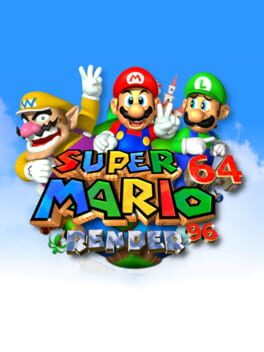The technical minutes of a remaster like this, primarily the addition of 60 fps, provides an oddly significant reinforcement of the original gameplay mechanisms that many other remasters of this level don't often contribute (righteously in most cases given the precariousness of preserving original elements) for other games. Although the possibilities of the movement system are also found in the Nintendo 64 version, 60 fps, perhaps in some ways placebo, comes off as a a direct request to the player to take risks in and embrace enemy or platform encounters via side flips or triple jumps. It, then, further contrasts the structure of the original against the modern class of 3D platformers which often limit its movement possibilities to a double jump (or, in some cases, double jump and hover) model. Although this should not necessarily be considered a "regression" given the necessities of, say, Psychonauts 1/2 to express its themes in a more guided and linear fashion, what is found here exemplifies a profoundly complex relationship between movement and level design which, even today, is rarely matched. Each level pathway, even though carefully designed and meant to explicitly signal in certain cases the necessity of using advanced movement, comes across as shortcuts found out of personal experimentation which feel like secrets not meant to be shared.
The level redesigns promised in marketing materials ask a bigger question of what a blend of classic and modern visuals should appear in the generation of ray tracing, which I can't answer with personal experience since I preferred to go with the original level textures (as the new textures are, for now, unfinished). Yet, passively observing the new environments still finds a bucking of re-release traditions in either remaking games from scratch or remastering assets without providing a major visual overhaul. In the case of render96, environments adhere to the look of Super Mario 64 render materials provided in 90s gaming magazines, primarily a plastic, yet "realistic" apperance with ray tracing adding reflections and detailed shadows. An analogy for this classic-modern visual blend may be "retro HD" JRPGs such as Octopath Traveler. However, whereas the framing of Octopath's graphics perhaps comes from a desire to refresh JRPGs for a new generation unaccostomed to their antecedents, with god rays and shadows that dominate appearance over 16 bit sprites, render96 desires to visit rose-tinted memories of game and gameplay, memories which often blended the stark amount of suspension of disbelief within childhood and marketing materials which promised revolutions in digital realities, and "realize" such memories. The polygonal and low-res textures of some environments aren't forgone even when placed alongside pinpoint shadow and lighting texture, almost as if going an inch forward in fidelity would dissolve the realistic-plastic world that, to the mind, is the closest to engaging in a simulacra of childhood daydreams. What's seen creates a sense of wonder regarding if future remasters, including those that will be made after numerous fan decompilations are completed, should, instead of "updating" their visual appearance, look at the implicit desire to find Gestalt in polygonal textures and leave such Gestalt in place even as the gap feels almost inches away from being closed.
The level redesigns promised in marketing materials ask a bigger question of what a blend of classic and modern visuals should appear in the generation of ray tracing, which I can't answer with personal experience since I preferred to go with the original level textures (as the new textures are, for now, unfinished). Yet, passively observing the new environments still finds a bucking of re-release traditions in either remaking games from scratch or remastering assets without providing a major visual overhaul. In the case of render96, environments adhere to the look of Super Mario 64 render materials provided in 90s gaming magazines, primarily a plastic, yet "realistic" apperance with ray tracing adding reflections and detailed shadows. An analogy for this classic-modern visual blend may be "retro HD" JRPGs such as Octopath Traveler. However, whereas the framing of Octopath's graphics perhaps comes from a desire to refresh JRPGs for a new generation unaccostomed to their antecedents, with god rays and shadows that dominate appearance over 16 bit sprites, render96 desires to visit rose-tinted memories of game and gameplay, memories which often blended the stark amount of suspension of disbelief within childhood and marketing materials which promised revolutions in digital realities, and "realize" such memories. The polygonal and low-res textures of some environments aren't forgone even when placed alongside pinpoint shadow and lighting texture, almost as if going an inch forward in fidelity would dissolve the realistic-plastic world that, to the mind, is the closest to engaging in a simulacra of childhood daydreams. What's seen creates a sense of wonder regarding if future remasters, including those that will be made after numerous fan decompilations are completed, should, instead of "updating" their visual appearance, look at the implicit desire to find Gestalt in polygonal textures and leave such Gestalt in place even as the gap feels almost inches away from being closed.
